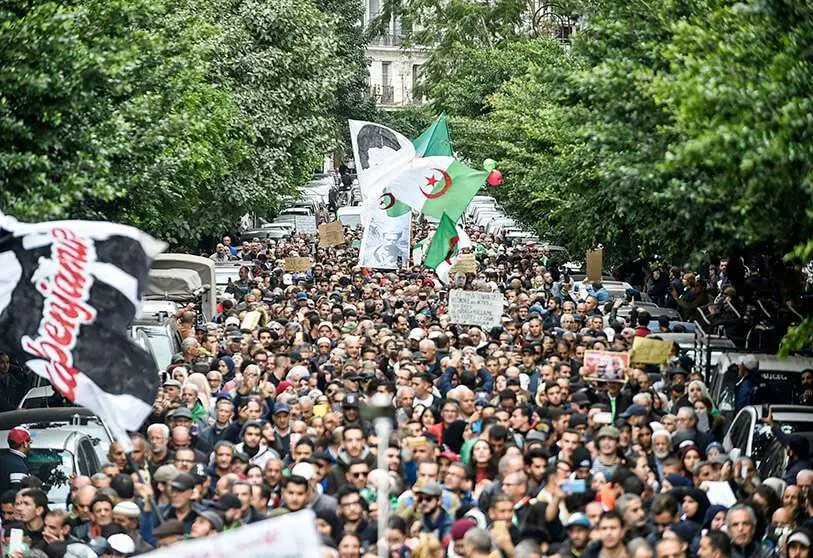Labour protests against violation of trade union rights in Algeria

Many sectors of the administration in Algeria launched protests and strikes recently; demonstrators criticised the government's proposed measures, which would limit the power of trade unions and force them to register with the state. The unions also oppose a draft law that would restrict the right to strike by setting new conditions.
Sectors that responded to the call include health care workers, transport services, education and administrative workers, construction workers, industrial workers and state employees. Many private companies also joined the protest. Demonstrators spoke out on the streets, in government buildings and in independent trade unions, demanding that the government withdraw the bill and allow the right to strike. The protesters also demanded improvements in the minimum wage, unemployment insurance and worker protection.
This lack of action by the General Algerian Workers' Union has been criticised by other unions in the country. Many have pointed out that the union has failed to rise to the occasion and has allowed the bill to pass without the input of the working class. This has led many to question the union's effectiveness as a defender of workers' interests and its commitment to working class ideals.

Local reports indicated that "more than 30 independent unions representing education, health, postal, solidarity and administration workers, imams and religious affairs workers launched a strike on Tuesday to denounce what it described as a threat to trade union freedoms and to press for the government to withdraw the bill altogether".
Algerian President Abdelmadjid Tebboune recently expressed his "respect for the constitutionality of strikes and protests", but acknowledged his dissatisfaction with the disorder of the unions.
The head of the Union of Public Health Professionals, Elias Murabit, also stressed the need for dialogue between the government and the unions to reach an agreement that satisfies all parties, and stated that "independent unions and other unions affiliated to the government must be heard and their opinion must be taken into account to reach a consensus".

In addition, the union leader called on the government to "urgently resolve the conflict, so that public services and the health sector do not suffer further damage. The unions are willing to engage in dialogue to reach a fair agreement for all".
Measures to improve workers' protection against dismissals, company closures and contract changes were also included, such as the right to uncontested severance pay, the right to severance pay for company closures, a ban on unilaterally changing workers' contracts and the need to inform workers about the situation of the company in which they work.
Laws against union labour in Algeria have contributed significantly to the social protests in the country. This is because this legislation limits the ability of workers to organise in trade unions and fight for better wages and working conditions. These restrictions have discouraged workers and civil society, and have pushed many to join the Hirak movement protesting against the government. The Hirak movement began in February 2019 as a response to laws limiting freedom of association and other labour rights. Protesters have demanded the repeal of these laws, as well as the release of political prisoners and the reduction of corruption. Anti-union labour laws have made it difficult for unions to form in the country, limiting workers' ability to negotiate for better wages, working conditions and other benefits. As the Hirak movement gains momentum, the Algerian government has made limited changes to its legislation to improve working conditions and freedom of association.

For observers, the latest political initiative is a sign that the executive is taking steps to reduce the space for opposition and strengthen its control over political life. Many believe that the government is trying to control society by force and silence criticism, which could have serious consequences for democracy and human rights in Algeria. At the same time, the international community has expressed its concern about these actions and has called on the Algerian government to respect the human rights and fundamental freedoms of citizens. The Algerian government must ensure that all citizens can exercise their right to freedom of expression and freedom of peaceful assembly without fear of repression. If it fails to do so, it would face increased distrust and criticism from the international community.








